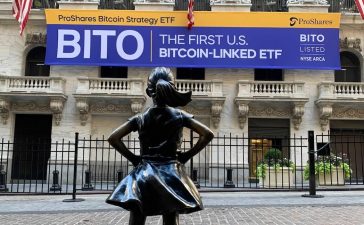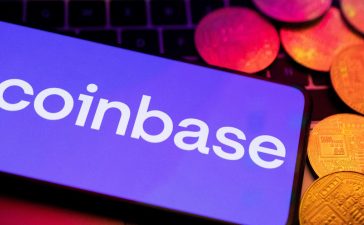It’s hardly a surprise that Meta, owner of Facebook, is refusing to renew its deals with Australia’s media companies. It was always grudging in its negotiations and never really accepted the principle that it should pay for the benefit of using the work of journalists.
Facebook and Google were forced to the bargaining table by the news media bargaining code. That law allowed the government to “designate” digital platforms, which would force them to negotiate with media companies.
The big stick was that if the parties could not agree, the decision would be made by an independent arbiter. In other words, Google and Facebook would lose control.
In 2021, after a few hissy fits, Google and Facebook avoided designation by cutting deals outside the legislation. These deals, mostly for three years, were worth an estimated $200m for news media companies. More journalists were hired and more journalism was done as a result.
But there was always the risk it would be a sugar hit, rather than a path to sustainability.
The news media bargaining code and the deals that followed were political more than commercial.
Google and Facebook always argued that the commercial benefit of their use of news content flowed principally to the media organisations – and that there was therefore no justification for them to have to pay. When the Australian Competition and Consumer Commission asked them for evidence to back this up, “little useful information was forthcoming”, according to the then ACCC chairman, Rod Sims.
The real value of news media content to digital platforms like Google and Facebook has never really been tested.
But, with the support of all the media companies, including the mighty News Corp, the government had the political will to pass the law and force a result.
Facebook was also always more grudging than Google, cutting fewer deals and notably failing to reach agreement with smaller outlets such as SBS and The Conversation.
But it avoided designation, deals were cut and the show rolled on. Now the deals are expiring and Meta seems to think it can call a bluff.
Since the deals were cut, Facebook has, by tweaking its algorithms and the like, made itself virtually useless as a source of news.
You can go to the Facebook pages of news media organisations, to be sure. But you are very unlikely to find their content by scrolling through what Facebook chooses to serve you.
And, very fast, TikTok and WeChat have become more important sources of news than Facebook. Apple News has also grown exponentially in importance.
On Friday, the Albanese government was surprisingly strong in its comments on Meta’s intransigence. It seems that the political will to force the platforms to negotiate remains in place.
But will the government also move on TikTok and Apple? That would be quite a fight, and in an election year. And could it even be done, given that TikTok is Chinese-owned?
Meanwhile, the news media is about to be hit with another tsunami of change, in the form of artificial intelligence and its integration into search engines.
This could be the most catastrophic threat to the sustainability of professional journalism so far, in an industry that has barely recovered from the flight of classified advertising to online platforms in the 90s and the exodus of most of the rest of the advertising revenue to Google and Facebook since 2014.
Let me explain. Suppose you go to Google, or to the Microsoft competitor Bing, and search for information on the Gaza Strip.
You would get a list of search results, some of which would be links to mainstream media articles. If you clicked through, your visit would be counted and that traffic would attract advertisers and therefore revenue that pays for the journalists.
If you find yourself frequently visiting a particular news site, you might choose to subscribe, or in the case of the Guardian, voluntarily give support.
At the moment, both Bing and Google offer you the option of searching using AI – but it is not the default. That may soon change.
In which case, your search would yield not a list of sites to click through to, but rather an article about the Gaza Strip written by a robot, using the content of news media companies and other sources.
There might be links to the sources – but they would be much less prominent. They may not be there at all.
People who click through from search engine results make up a big proportion of the traffic for news media and it has been increasing.
Outlets that are free to the user (such as the Guardian, the ABC and commercial television news sites) are particularly dependent. If a large part of the traffic from search engines is lost, making journalism sustainable becomes even harder than it already is.
I have probably chosen the wrong example in the Gaza Strip because there are some things robots can’t do. They can’t bear witness. They don’t go to places, talk to people, exercise judgment, consciously seek out alternative views and perspectives.
But robots can take the products of the journalists that do those things and exploit them.
In the short term, it is lifestyle journalism that is most likely to be threatened – travel sections, all those superficial articles that conclude that good diet and exercise improve your health (who knew), food journalism, recipes and the like.
Already, if you want to construct an itinerary for a three-day visit to Barcelona, AI is an efficient way of doing it. There is no need to comb through the weekend travel supplements.
High-end, literary travel journalism and truly sensual food writing will continue to delight, of course, But how much of the stuff that swells the weekend papers and the media sites meets that test?
What matters to democracy is not the disappearance of the lifestyle journalism so much but the advertising that wraps around it.
If that goes – the travel ads, the cosmetic ads, the food ads – the financial viability of much of news media will go with it.
What can be done? All the news media companies are carefully watching the way that Microsoft and Google are integrating AI into search.
Many news media are blocking outfits like OpenAI from scraping their sites. Google and Microsoft are harder to stop. It is not clear that it can be done.
Copyright law – a limp and fuzzy beast – may not be adequate to stop the cannibalism, but publishers are keeping their options open on legal action.
What about the news media bargaining code? At the moment it doesn’t cover the use of media content for training the AI robots – but perhaps, with modification, it could.
As is always the case in news media, change comes more quickly than the response.
The government is consulting about ways of helping the sustainability of news media through its News Media Assistance Program. But as the discussion paper acknowledges, there have been multiple inquiries into the problems of making journalism sustainable in recent decades and the response from successive governments has been, at best, “ad hoc or reactive”.
Meanwhile, journalists lose their jobs and the media are hollowed out, losing its confidence and sense of mission. Most of the recommendations of these inquiries – and they have largely said the same things – have been overlooked.
Ideas now on the table include tax incentives for investment in public interest journalism and tax deductibility for donations to not-for-profit journalism enterprises. (Declaration: through my involvement with the Public Interest Journalism Initiative , I have been involved in the development of such proposals.)
Whether or not these ideas gain favour, it is well past time for some up-to-date, nimble media policy.
Otherwise, the historians may conclude that the internet brought not a new enlightenment, as many of us hoped, but instead a new dark age.










